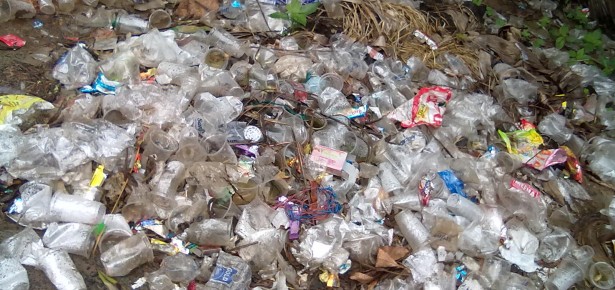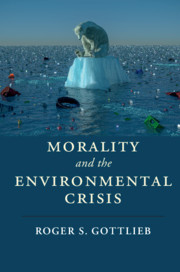
Adapted from Morality and the Environmental Crisis
We cannot heal our relation to nature—and even perhaps include nature into a new and vibrant “ecological” democracy—with methods we have used in cases of class, gender, and racial oppression. Dolphins cannot argue with us; and there are no autobiographies of hawks to reveal what we share. We must, rather, learn to take seriously some other parts of ourselves than those we usually stress: that part of us which has value and can be in relation beyond our self-representing, self-interested egos; our demands and preferences; our culturally masculine denial of vulnerability and assumed superiority over a nature and women.
You get up in the morning, see your parents or children or roommates. “How are you?” you ask. They might smile or frown, be high energy or fighting a hangover. If your neighbor of many years doesn’t sit on her front porch anymore; if the people you regularly communicate with don’t email, call or tweet, you sense a possible problem, you reach out, you care. If you read of hurricane devastation, you might send a contribution or organize supplies. You probably like it when Riff the dog or Fluffy the cat greet you with tail wag or purr; and if they lie in a corner, head on their paws, and barely look up, you know something isn’t right.
This last sense of connection is not in language. And it is available to anyone—of any race or gender, nationality or religion, at virtually any historical period. Notice what it takes to connect with Riff and Fluffy: attention to the details of the body, empathy with subtle emotional cues (the drooping tail, the lack of expression in the eyes), and an imaginative extension of ourselves into their experience. But this experience, and here is perhaps the key point, resides in something within ourselves that is not tied to social identity or complicated self-descriptions. The basis of our communion with nature is that we are beings that breathe and eat, feel wind and rain, experience love, fear, and pleasure in our bodies, have an identity bounded by birth and death, and get to share this planet.
If trees root to the earth, so do—in rather more mobile ways—our own legs. If the earth’s surface is eighty percent ocean, so is our own body. Human children frolicking in the grass surely can remind us of kittens playing, and ten thousand ants working together are not, seen in a certain light, all that different from workers headed for a day at the office. As the trees breathe out, we breathe in—and vice versa. We seek our own existence, our own lives; and so do the pigeons picking up crumbs in the park, the rats scurrying to the open garbage cans, seeds sprouting beneath the earth. Everything that is alive senses its surroundings, signals what it wants or is repelled by, seeks a fit for itself in where it lives.
For me—and in particular: Although I live within the city of Boston, I am fortunate to be a few blocks from the lovely Jamaica Pond. A mile and a half around, surrounded by trees, graced by turtles, seagulls, geese, cormorants, the occasional heron, and a few magnificent white swans, the pond reflects the changing sky of moon, sun, snow, and rain, and offers a space for joggers, lovers, pensive dog walkers, and frisky dogs. It soothes chronically anxious city dwellers, serving as a kind of emotional transfer station. People go to the pond at a loss and come back a bit more—strange to say—alive.
For me, Jamaica Pond is kin. I’ve lived near it virtually all of my adult life, and turned to it countless times for recreation, pleasure, and emotional and spiritual sustenance. I know each curve of the path the surrounds it; when the trees flower in spring; the varied colors of the fall; what it looks like, frozen, in February moonlight; and how one wooded hillside glows with sunset colors. I’ve taken countless “nature” photographs of it; jogged around it thousands of times, and shared excited moments with strangers by pointing out turtles sunning on a fallen branch or a blue heron standing in the shallows.
I grieve for the destruction of the rainforest and the beaches covered with plastic refuse in the isolated islands of the Pacific. Yet these I know only from second hand sources: pictures, articles. If something goes wrong in the pond, I know it. When a beloved tree falls from age or illness, I run my hands over the trunk and whisper a blessing. When pollution was washed in from unusually high rainfall, I could smell it. And in the value the Pond has for me and countless others, and in the knowledge we can develop of it, there is a way for the interests of the Pond (with all its trees, fish, birds, and insects) to be part of our community. And as part of our community, then part of our political system—an “ecological” democracy—as well.

Morality and the Environmental Crisis by Roger S. Gottlieb
Latest Comments
Have your say!